How to play the God of War games in chronological order
The chronological order and timeline for the GoW series.
God of War is one of PlayStation Studios' most prized and celebrated IPs. Cory Barlog's critically acclaimed reboot and its glorious follow-up propelled Kratos into one of Sony's most recognisable and revered icons of the most recent console generations.
With this year marking 20 years since Kratos made his first appearance on the PS2, now's the perfect time to catch-up on any of his earlier adventures you may have missed out on. To help you out, we've put together this guide on how to play the God of War games in order, which covers both the chronological and release date order of all the mainline games.
On this page:
- How to play the God of War games in order
- God of War games in chronological order
- God of War games in release order
How to play the God of War games in order
If you're new to the God of War series, and want to play all of the mainline titles, there are two ways you can approach your playthrough - either in chronological or release date order:
Chronological: If you want to experience Kratos's story in chronological order, then you would start with the prequel game God of War: Ascension, which was released on the PS3, and end your playthrough with God of War: Ragnarök which is out on the PS4, PS5 and PC.
Release date: The other option is to play through the God of War series in the order each game was released, beginning with 2005's PS2 original and then working your way through to God of War: Ragnarök which launched in 2022.
However, whether you can play all the games in the God of War series depends on what consoles you have in your collection. Apart from God of War 3: Remastered, Kratos's early adventures are not available on the PS4 and PS5, so if you want to play them now your best bet is the PS3, which has the prequel Ascension that never left the system and remasters of the Greek Saga games that originally appeared on the PS2 and PSP. There are rumours that the original God of War games could be getting a remaster for modern systems, which would open these classic titles up to a whole new audience.
God of War games in chronological order
There are 10 games in the God of War series, as well as the Valhalla expansion for God of War: Ragnarök. However, we've omitted two of the games in the series from our list below due to their availability. These games are the 2007 mobile title God of War: Betrayal, which is only available nowadays via emulation, and 2018's God of War: A Call from the Wilds, which was a text-based adventure on Facebook Messenger that is no longer available.
As an aside, it's important to note that the God of War series is marked by two different eras. The early games are known as the Greek Saga, as it is based on Greek mythology, while the 2018 reboot and Ragnarök are known as the Norse Saga as it's based on Norse mythology. So without further ado, here's how to play the God of War games in chronological order:
God of War: Ascension (2013)
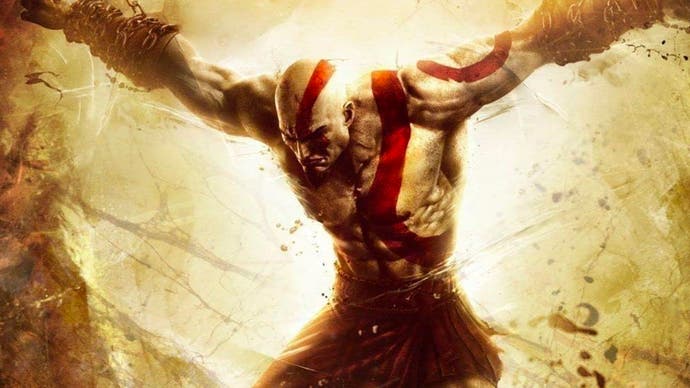
God of War: Ascension is the seventh game released in the series, but it's the first chronologically. As with the other GoW games prior to the 2018 reboot, Ascension is set in an alternate version of Ancient Greece that is populated by Greek gods. The prequel takes place six months after the events that became the catalyst for the series, when Kratos was tricked into killing his wife and daughter by his master, the God of War Ares. Traumatised by what happened, Kratos breaks his blood oath to Ares, which causes the god to imprison and torture him. To escape his punishment and break free of his bond to Ares, Kratos has to kill the game's main antagonists, the Furies, who are vengeful deities sent to punish oath breakers.
Like the other games in the series, combat in Ascension is combo focused, with Kratos chaining up attacks to pummel enemies and players also having to react quickly to quick-time events to finish off foes. For those who have played the Norse Saga games, this will sound familiar but there is one major difference between the early and latter GoW adventures that is worth noting. The Greek Saga boasts a camera angle similar to a beat-'em-up which is quite far away, and gives a wide view of the battlefields Kratos is fighting in. Whereas the 2018 reboot introduced an over-the-shoulder viewpoint and the stylish one-shot take which Ragnarök emulates as well.
Ascension is also the first game in the God of War series to include multiplayer, which is the main thing we praised when the game was first released. In our God of War: Ascension review we described the single-player campaign as "uneven" but applauded the "punchy multiplayer" for broadening "the game's aspirations and its appeal in a welcome way".
God of War: Chains of Olympus (2008)
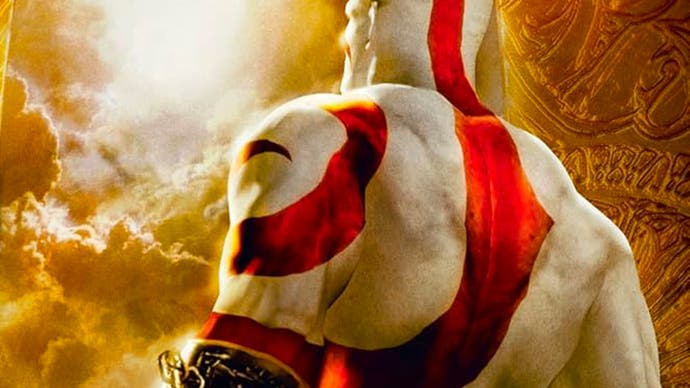
God of War: Chains of Olympus is the fourth game released in the series, but it's the second chronologically. Like Ascension, Chains of Olympus is a prequel to the original game released on the PS2, and is set five years before it. Kratos is halfway through his decade-long service to the Gods, which once completed will help free him from the nightmares he's having about his past. As part of his service, Kratos is sent by the goddess Athena to rescue the Sun God Helios from the underworld.
Unlike other games in the God of War series, Chains of Olympus wasn't developed by Santa Monica Studio, the devs best known for creating the franchise. It instead was made by Ready At Dawn, who later went on to create The Order: 1886. Chains of Olympus is the highest rated PSP game on Metacritic, and Ready At Dawn followed it up with another God of War game for Sony's handheld that is set between the events of the first and second games in the series.
In our God of War: Chains of Olympus review, we described it as "one of the most impressive games to appear on PSP" and said: "Chains of Olympus comes incredibly close to replicating what made the PS2 originals so exciting - both in terms of the visuals and gameplay."
God of War (2005)
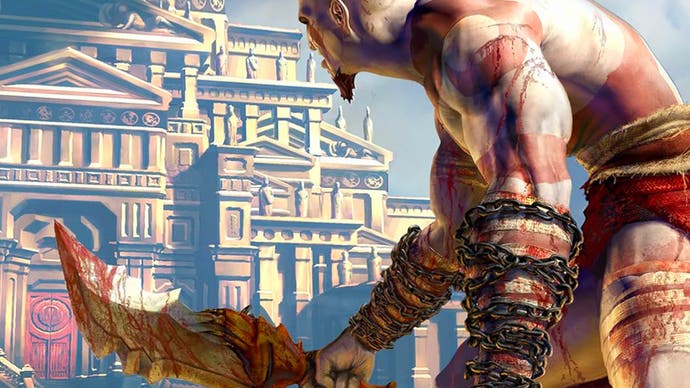
God of War is the PS2 classic that kickstarted the franchise. It's the first game released in the series, but is the third chronologically. Kratos is coming to the end of his servitude to the gods, but before it ends is given one final task by the goddess Athena. She calls on Kratos to kill his old master Ares, who is waging war against Athens. Once Kratos fulfils this final task he will be forgiven for killing his family, which Ares had tricked him into years before.
The game laid the foundation for the entire series, with its action-adventure mix of combo-focused battles, puzzles to solve and platforming gameplay, along with its alternative history take on Ancient Greece. It also introduced Kratos's signature weapon for the Greek Saga, the Blades of Chaos which are a pair of blades attached to chains. The themes of revenge and grief that the original set up are also a strong part of the series, and are touched on again in the 2018 reboot and its follow-up God of War Ragnarök.
Throughout the PS2 original, we find out more about Kratos's backstory, and how he once was a fearsome Spartan warrior who captained his army to several victories before at last getting defeated. On the verge of death, he called on Ares and said he would serve the gods if they spared his men. That was the beginning of his servitude to Ares, with his master later tricking the former Spartan captain into killing his family. The 2005 classic follows Kratos as he goes from being Ares' former servant out for revenge to - spoiler alert - eventually replacing his old master as the new God of War.
Back when the beloved action-adventure game first launched, we lauded it in our God of War review, saying: "When the dust settles on the PS2 era and it's time to sit back and reflect upon the system's best games, God Of War stands out as an absolute colossus that towers over the competition - on any format."
God of War: Ghost of Sparta (2010)
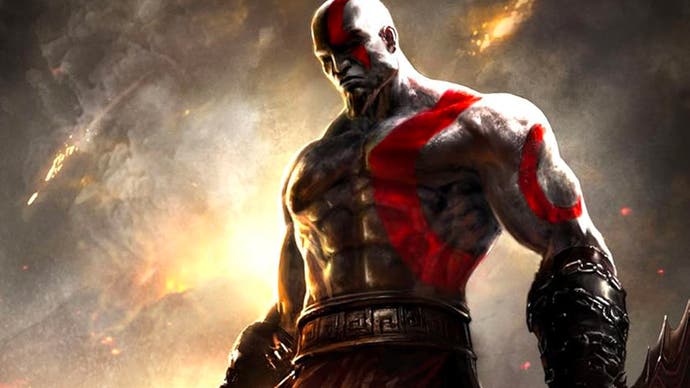
God of War: Ghost of Sparta is the sixth game released in the series, but the fourth chronologically. It's also the second GoW handheld game that was made by Ready At Dawn, after Chains of Olympus which was released a few years beforehand. Ghost of Sparta is another God of War prequel that's set in-between the first and the second games in the series. Following the events of the original, Kratos has now replaced Ares as the God of War - but he is still haunted by visions of his past.
Besides the loss of his daughter and wife at his own hands, through flashbacks we find out that when Kratos was younger his brother Deimos was kidnapped and imprisoned by Ares. The former God of War believed Deimos, who had a distinct birthmark, was a marked warrior that oracles foretold would bring about the demise of Olympus. Ghost of Sparta follows Kratos as he travels to Atlantis and Sparta in search of his brother, and along the way encounters his mortal mother.
In our Ghost of Sparta review, we described the 2010 adventure as "best enjoyed by newcomers to the series" and added that "as with the stories upon which it's based, this is a game with nothing new to say".
God of War 2 (2007)
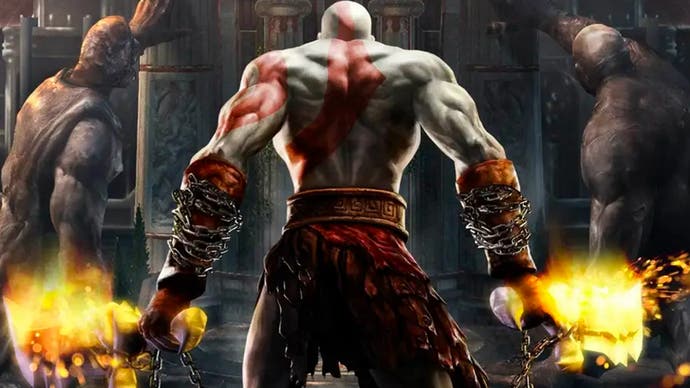
God of War 2 is the second game released in the series, but the sixth chronologically. Following the events of the original, Kratos is the new God of War but has been shunned by the other gods after aiding the Spartan army to conquer Greece. Despite pleas from Athena for peace, Kratos heads to battle once again in Rhodes - where he ends up getting betrayed by Zeus who robs him of his godly power, leading to his death in battle.
In the Underworld, Kratos is saved by Gaia, the mother of the Titans, who offers him a chance to rewrite his fate. Kratos has to find the Sisters of Fate, who can turn back time and let Kratos stop his betrayal and get his revenge on Zeus. While the original God of War was directed by David Jaffe, also known for his work on the Twisted Metal series, God of War 2 was the first game directed by Cory Barlog. Barlog went on to become synonymous with the series, acting as the director and writer on multiple God of War games, including the 2018 reboot and God of War Ragnarök.
In our God of War 2 review from when the game launched, we said: "As refined and honed as the gameplay is as a whole, you can never quite replicate the wow factor of the original - even if it ends up being a better game. Lack of innovation or not, the important thing to stress is that God of War II boasts some notable improvements in every area, and is therefore a game that any fan of action-adventures should rush out and buy immediately. Satisfaction guaranteed."
God of War 3 (2010)
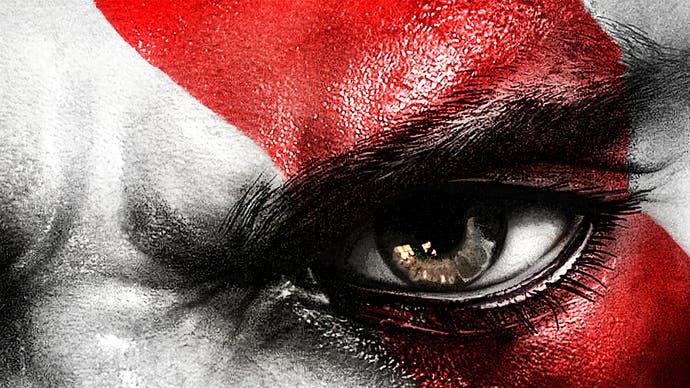
God of War 3 is the fifth game released in the series, but the seventh chronologically. It wraps up the Greek Saga of games that began with the original PS2 classic. It takes place directly after the events of God of War 2 with Kratos, Gaia and other Titans ascending Mount Olympus to destroy the other Olympian gods. Once he reaches the top to battle Zeus, Kratos is betrayed again and sent to the Underworld, where he encounters an old ally who he rejoins forces with to get his revenge on Zeus.
When he returns to Olympia, Kratos has to face-off against multiple Gods including Helios and Perses before his final showdown with Zeus. The concluding chapter of the Greek Saga - spoiler alert - ends with Kratos getting his revenge on Zeus, who he learnt at the end of God of War 2 is his father. To finally defeat Zeus though, he has to use the mythical Pandora's Box, which has been filled with the power of hope. This helps Kratos forgive himself for his past, and after being aided by the spirits of his wife and daughter in his battle against Zeus, Kratos sacrifices himself to spread the power of hope among mankind. While it looks like Kratos died doing this, a post-credits scene hints he survived.
In our God of War 3 review, we said: "God of War III is exactly the experience fans are expecting, most likely. It's polished but never impersonal, vast and explosive but never merely deafening. It's Scalextric adventuring, to be sure, but you'll rarely feel as confident to let a game lead you down the track, safe in the knowledge that it's only going to tug you towards fun."
God of War (2018)
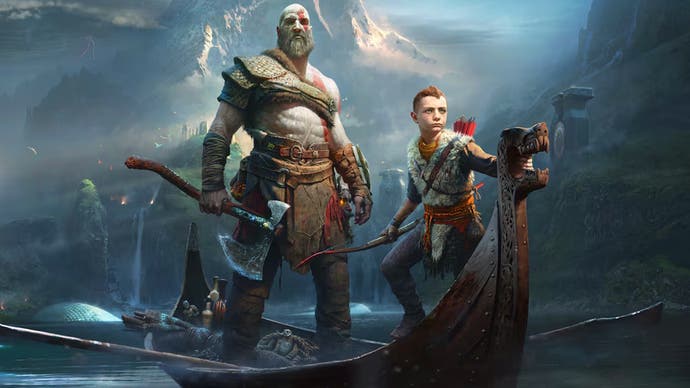
God of War (2018) was the first game released in Sony's action-adventure series in five years. It is the ninth game released in the series and also the ninth chronologically. The 2018 PS4 reboot refreshed the long-running franchise, with one of the biggest changes being the camera shifting from a fixed viewpoint to an over-the-shoulder, third-person view which all looks like one continuous take from beginning to end. While the previous games were based on Greek mythology, the 2018 reboot is based on Norse mythology instead, and it also introduces a major new character - Kratos's son Atreus.
Set in Ancient Scandinavia, God of War follows Kratos and his son as they go on a journey to fulfil the last wishes of his late, second wife Faye. Atreus's mother had asked for her ashes to be scattered from the highest peak in the Nine Realms. Along the way, Kratos, who has been hiding his divine power from his son, and Atreus will battle mythological Norse gods and monsters. While Kratos is the main playable character, who has a new magical axe as his main weapon, commands can be issued to Atreus who provides support in battle.
As part of the reboot, God of War also incorporates RPG elements including EXP points that are used to learn new skills, a crafting system and side quests which make it longer than any GoW that had come before it.
In our God of War (2018) review, we said the reboot boasted "astonishing technological craft" but "the heart of this series remains gloriously unaltered".
God of War Ragnarök (2022)
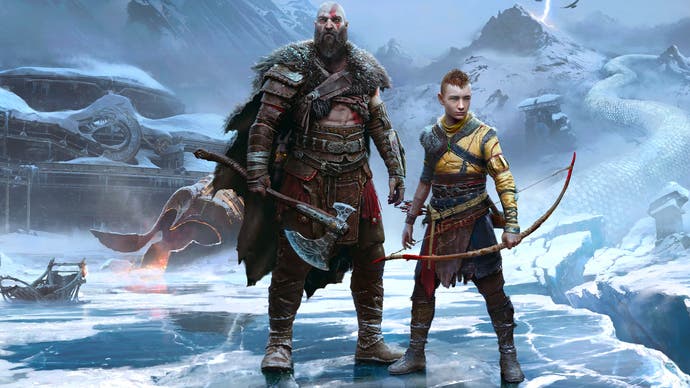
God of War Ragnarök is the tenth game released in the series, and it's also the tenth game chronologically. Set three years after the events of God of War (2018), it's the concluding chapter of the Norse Saga. It follows Kratos and Atreus as they try to prevent Ragnarök, the apocalyptic event that is a pivotal part of Norse mythology, from destroying the Nine Realms. On their journey, they'll travel to every region of the Nine Realms, with Midgard the game's primary area.
Supporting characters from the 2018 reboot like Mímir and Freya make a return, while Ragnarök also introduces the new major antagonists Odin and Thor. Ragnarök also explores Atreus's powers more, with his abilities now enhanced and players - spoiler alert - even getting to control Atreus fully during some missions, which is the first time in the God of War series that players can control another character apart from Kratos.
God of War Ragnarök also has a free DLC called Valhalla - which is a roguelite expansion that offers an epilogue to the main game.
In our God of War Ragnarök review, we described it as a "triumphant return" and said: "Above all, though, Ragnarök's dramatic might comes from its unique access to a sense of scale, a sense that was so sorely missed in the previous game and remedied with conviction here at last."
God of War games in release order
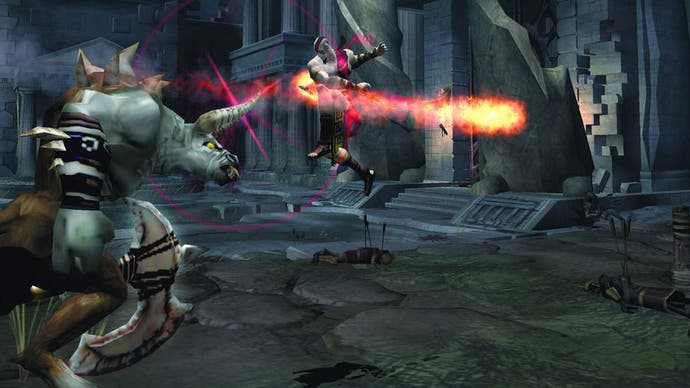
If you'd rather play the God of War series in the order the games were released, then here's the release date order for all the mainline GoW games:
- God of War - (2005)
- God of War 2 - (2007)
- God of War: Chains of Olympus - (2008)
- God of War 3 - (2010)
- God of War: Ghost of Sparta - (2010)
- God of War: Ascension - (2013)
- God of War (Reboot) - (2018)
- God of War Ragnarök - (2022)
- God of War Ragnarök: Valhalla (DLC) - (2023)
Like with our chronological order, in our release date order above we didn't include 2007's God of War: Betrayal and 2018's God of War: A Call from the Wilds. The former can only be played unofficially these days via emulation, while the latter has since been delisted.
What's next for the God of War series?
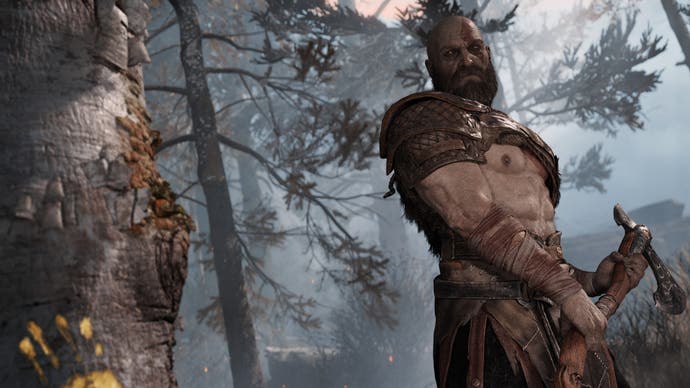
God of War fans have a live-action TV show to look forward to. Announced back in 2022, the adaptation of Sony Santa Monica's beloved series will be heading to Amazon's Prime Video service. When it releases on the streaming app remains to be seen though, with the project reportedly getting a "do-over" in 2024 after the previous showrunner and producers left the upcoming show.
Besides this, there are rumours swirling around what Sony has planned next for the God of War series. It's been claimed a prequel starring a younger Kratos in Greece could be in the works, while a remaster of the Greek Saga is also rumoured.
That's it for our guide on how to play the God of War games in order. For more on GoW, head to the Digital Foundry features on the PC port of the reboot and how Ragnarök runs on PS5. We've also got a feature on how Ragnarök was ported to PC, as well as a deep dive into the animations in Ragnarök.

